The first time Charlie Poole and his North Carolina Ramblers walked into a recording studio in New York City, they blew the doors off the place.
It was July 27, 1925, and the first record by the three of them — banjoist Poole, fiddler Posey Rorer, whom he had met in West Virginia eight years earlier, and guitarist Norman Woodlief — sold more than 100,000 copies.
That was raging success in anyone’s book. It is especially true, considering that at the time there were only about 6,000 phonographs in the entire American South, the intended market for what Columbia Records called its “Hillbilly series.”
It didn’t make Charlie and guys rich, though. Alas, in 1925, artists were paid by the song recorded, not by the copies sold. The Ramblers got $75 for the session.
About the Song
The song that made all those wave — “Don’t Let Your Deal Go Down” — was an old blues that was a favorite of Piedmont pickers from Virginia down to Georgia.
A year after Poole’s waxing of it, Ernest Stoneman recorded a version. So did Vernon Dalhart. West Virginia singer/guitar Frank Hutchison did it as “The Deal” in 1929.
Thirty years later, bluegrass pickers were loving on it. Lester Flatt and Earl Scruggs recorded a rendition in August 1957.
Since then there have been tasty takes by Doc Watson, The New Lost City Ramblers, The Grateful Dead, David Bromberg, the Flying Burrito Brothers, Bob Wills and many others.
The song apparently has deep roots — a man named Tyler Meeks once told a folklorist that he learned the song in 1911 from a guitarist named Charlie Blackstock — and while “Don’t Let Your Deal Go Down” is often referred to a “white blues,” Black Piedmont artists like Etta Baker and John Jackson also have taken swings at the song.
The Deal? What Deal?
But what “deal” are we supposed to not let go down? The song’s title seemed to refer to card playing, but what game?
Author Zora Neale Hurston, who beautifully documented much 20th Century culture, recorded in her 1935 book Mules and Men that “Let the deal go down" was a chant associated with what card fanciers used to call “The Georgia Skin Game.”
Of this largely forgotten game, Hurston wrote:
Any number of “pikers” can play at a time, but there are two principals who do the dealing. Both of them are not dealing at the same time, however. When the first one who deals “falls,” the other principal takes the deal. If he in turn falls, it goes back to the first dealer. The principals draw the first two cards. The pikers draw from the third card on. Unless a player or players want to “scoop one in the rough,” he can choose his own card which can be any card in the deck except the card on top of the deck and that one goes to the dealer. The dealer charges anything he pleases for the privilege of “scooping,” the money being put in sight. It is the player's bet.
After the ones who wish to have scooped, then the dealer begins to “turn” the cards. That is, flipping them off the deck face upwards and the pikers choose a card each from among those turned off to bet on. Sometimes several pikers are on the same card. When all have selected their cards and have their bets down, they begin to chant “Turn 'em” to the dealer. He turns them until a player falls. That is, a card like the one he is holding falls. For instance, one hold the 10 of Hearts. When another 10 falls he loses. Then the players cry “hold 'em” until the player selects another clean card, one that has not fallen. The fresh side bets are down and the chant “turn 'em” and the singing “Let de deal go down” [continue] until the deck is run out."
Whew! That’s a long trip to take to a title, but, hey, now you know….
Our Take On the Tune
Dave Peyton and Charlie Bowen first heard this song back in the mid-1970s when they were lucky enough to regularly sit in with the good folks of The Kentucky Foothill Rambler.
Band founder H. David Holbrook already was a walking/talking encyclopedia of all-things Charlie Poole — he still is! — and taught the fledgling Flood so many of those good old tunes.
So it was only natural when The Flood got re-energized 30 years ago, this old tune was on the playlist. And it still here, as you can hear in this track from last week’s rehearsal.

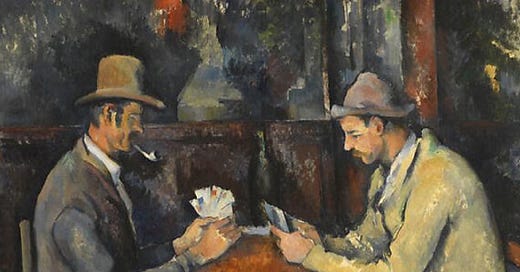



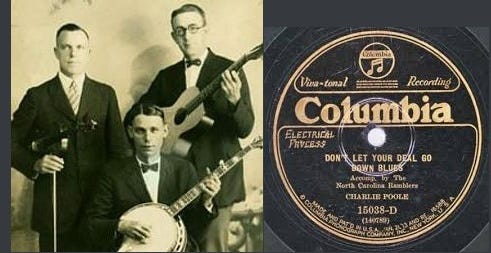
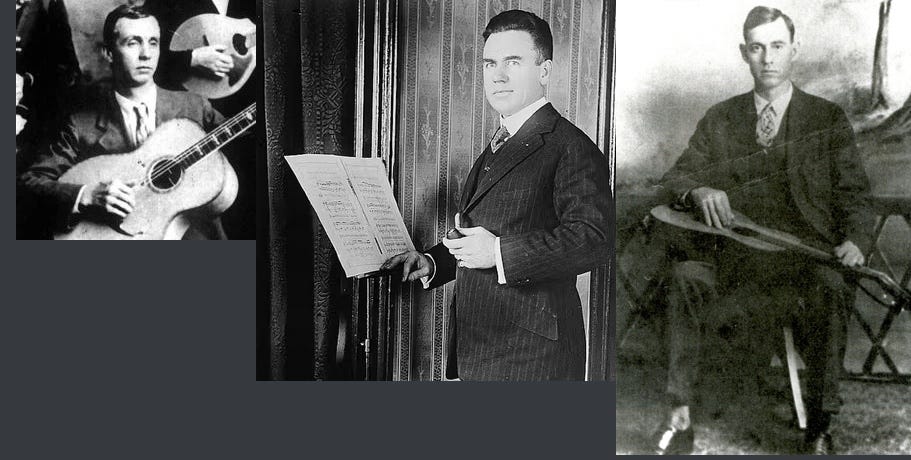
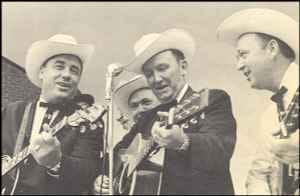
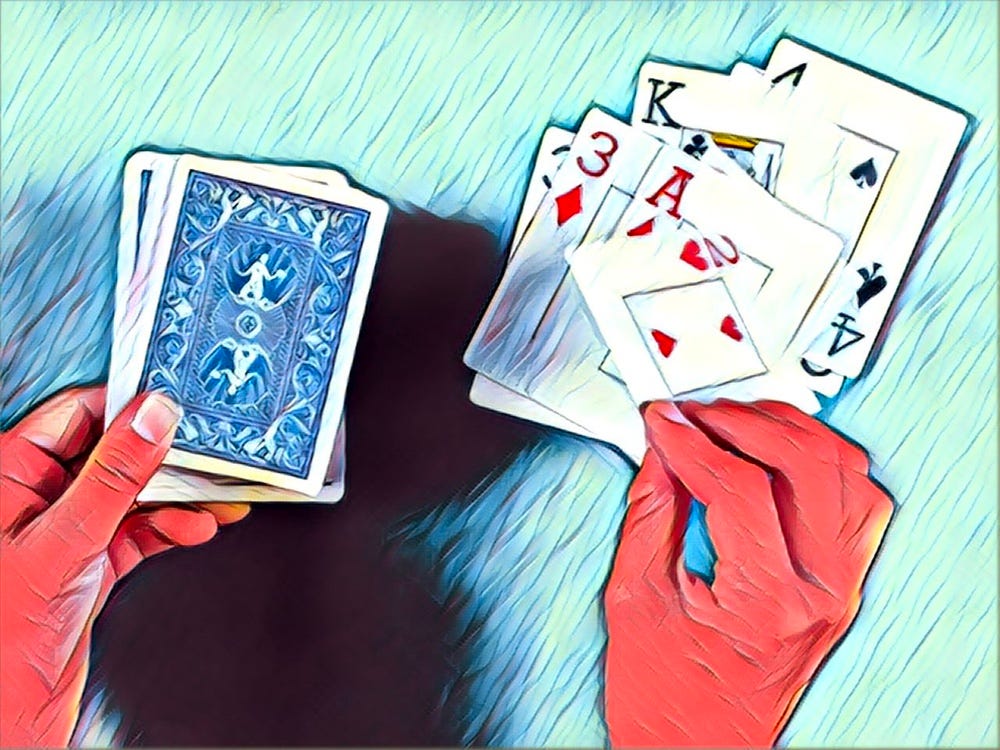
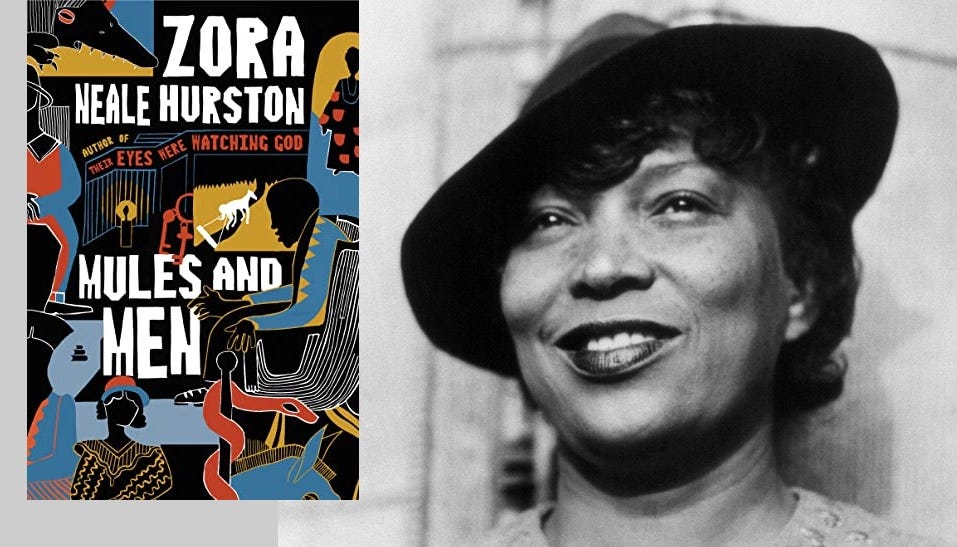
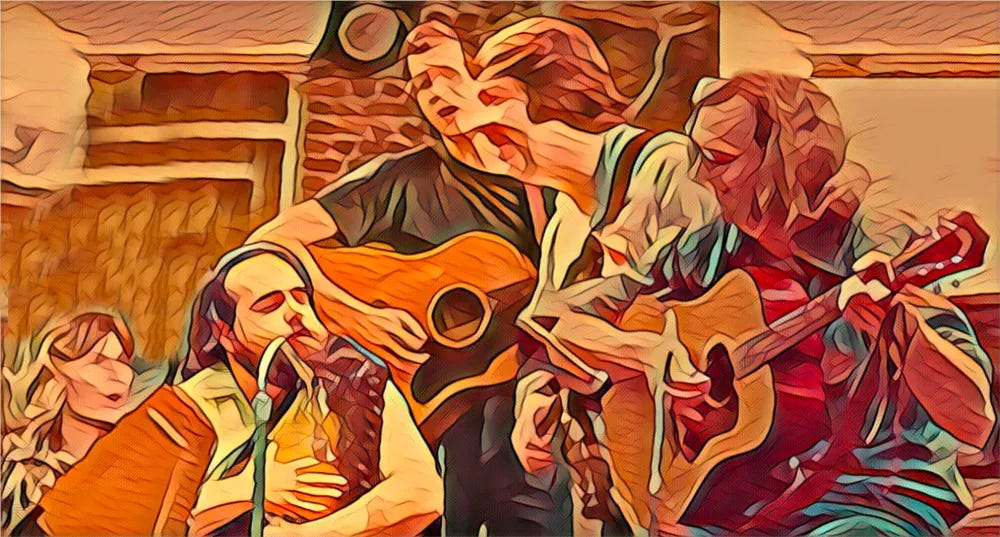








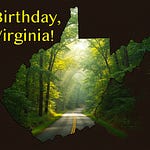

Share this post